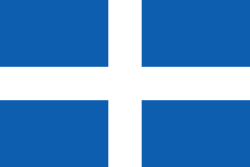| Greece at the 1932 Summer Olympics | |
|---|---|
 | |
| IOC code | GRE |
| NOC | Hellenic Olympic Committee |
| Website | www |
| in Los Angeles | |
| Competitors | 10 |
| Flag bearer | Christos Mantikas |
| Medals |
|
| Summer Olympics appearances (overview) | |
| Other related appearances | |
| 1906 Intercalated Games | |
Greece competed at the 1932 Summer Olympics in Los Angeles, United States. The Greek team participated to the Games, after a fundraising was organised by the Greek American Community to pay for the expenses of the travel. [1] The best results were Gerogios Zervilis' and Ioannis Farmakidis' 5th place, both in Freestyle wrestling.